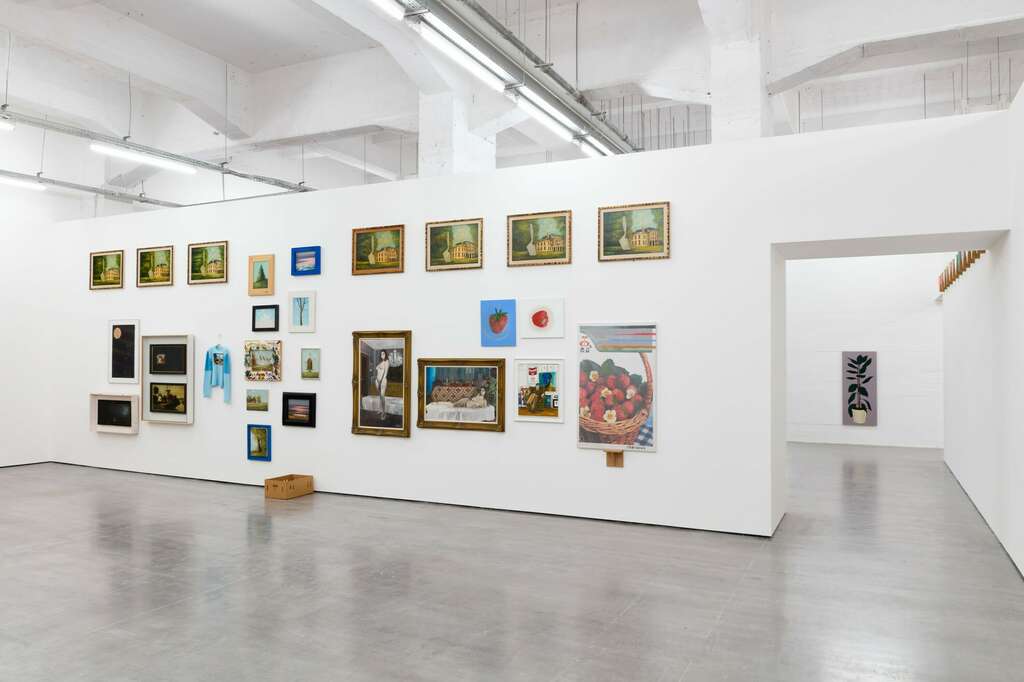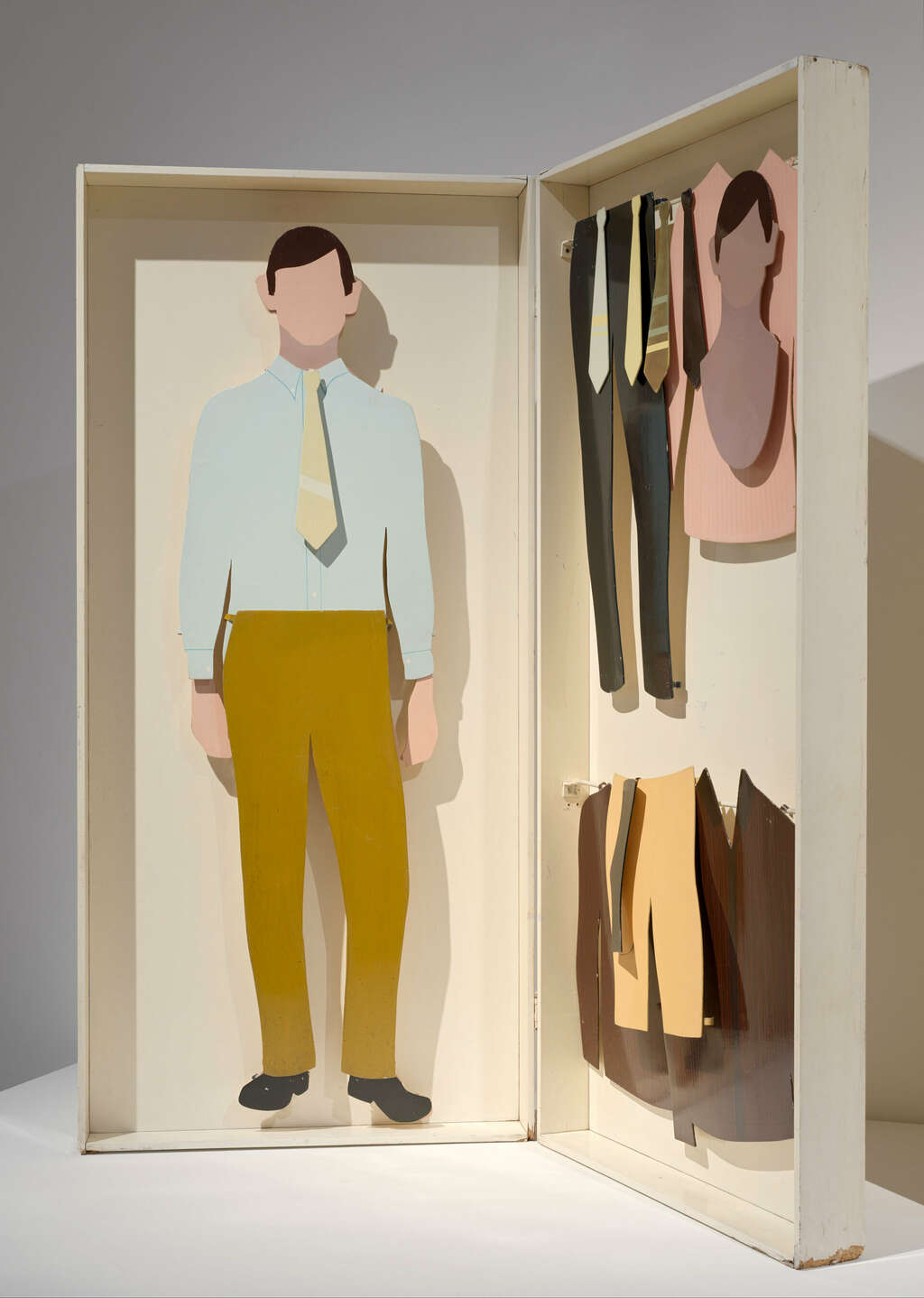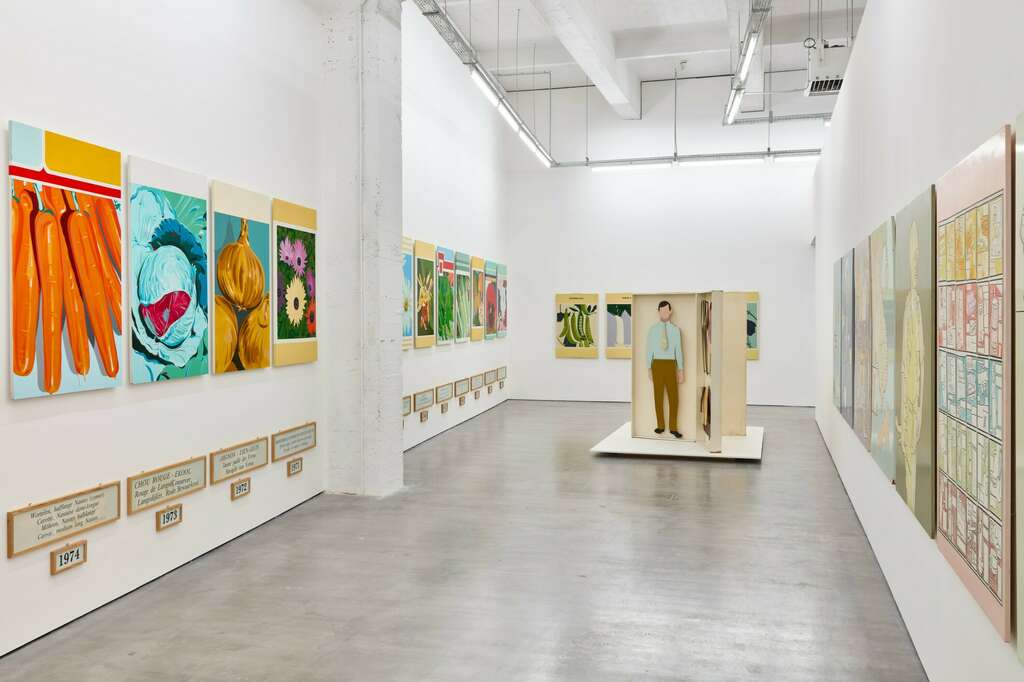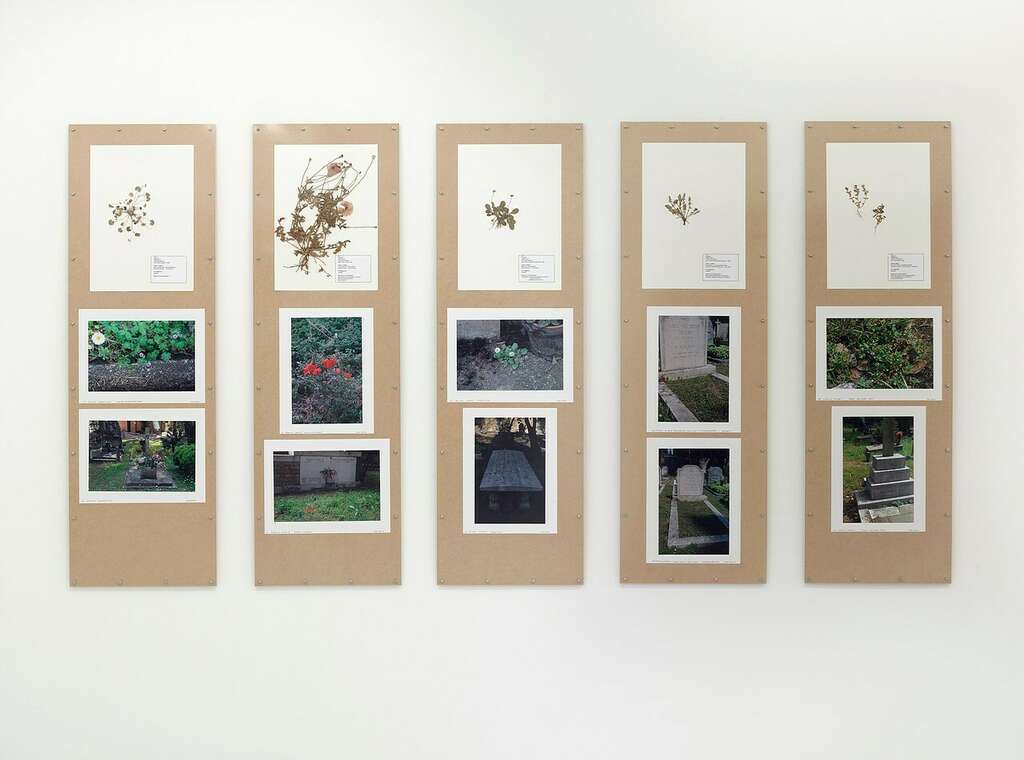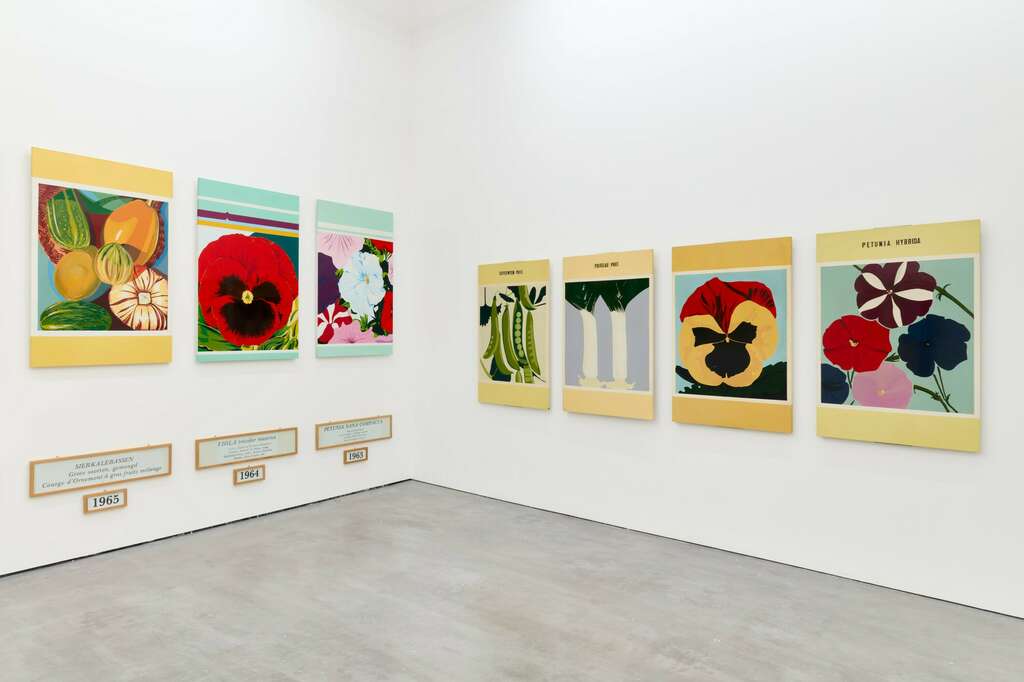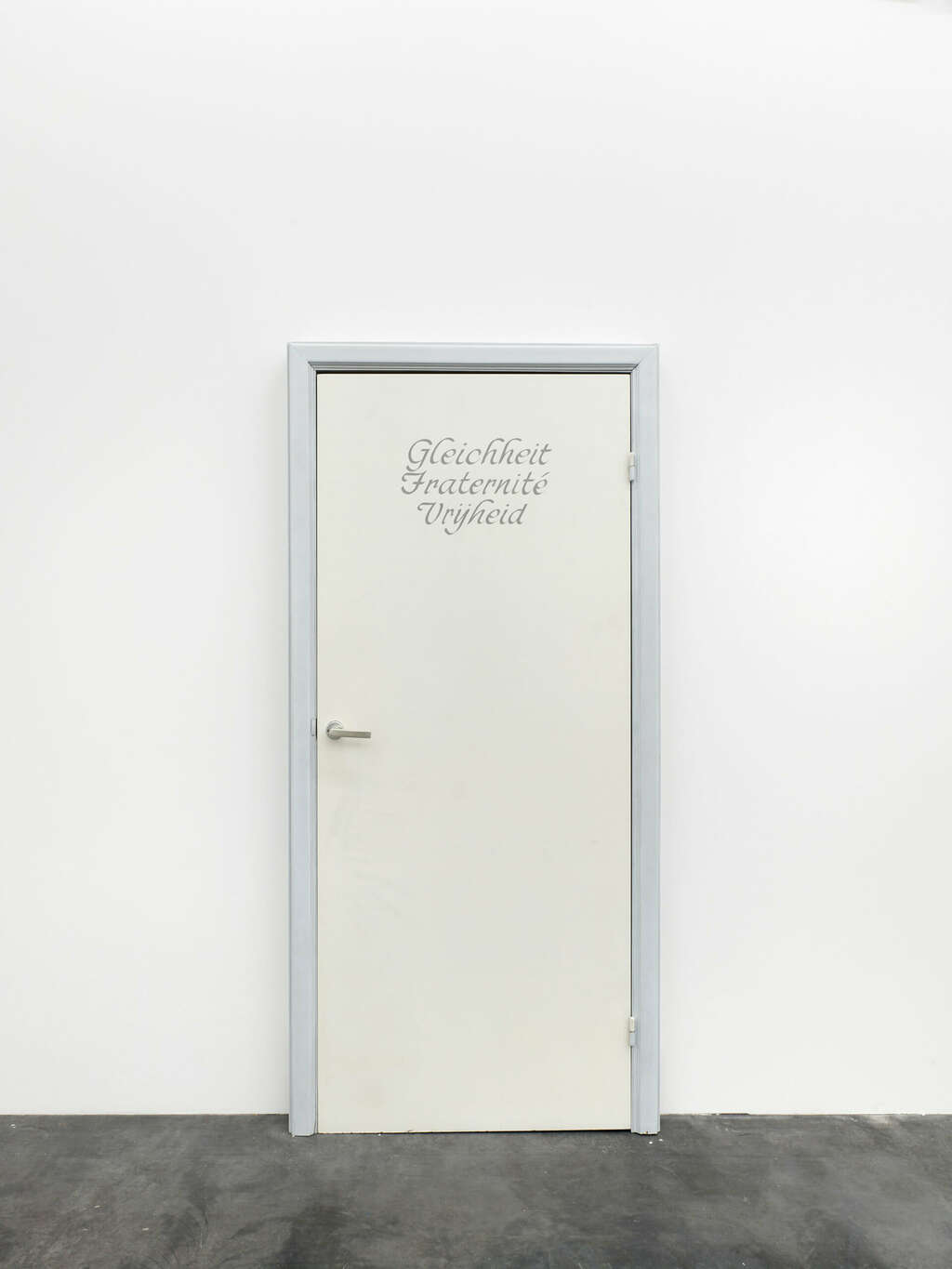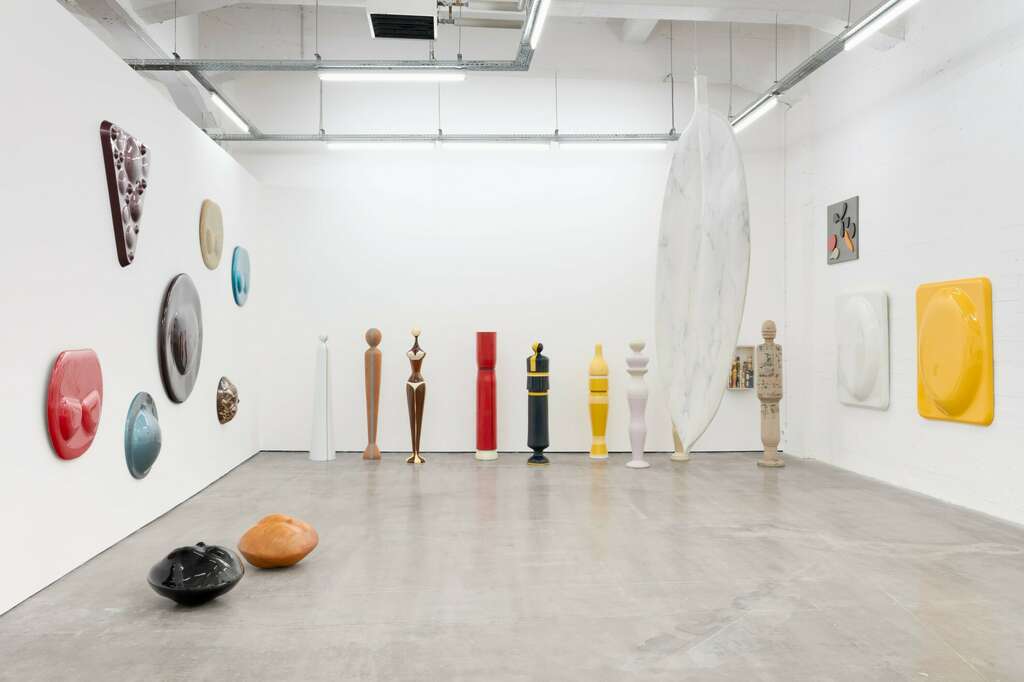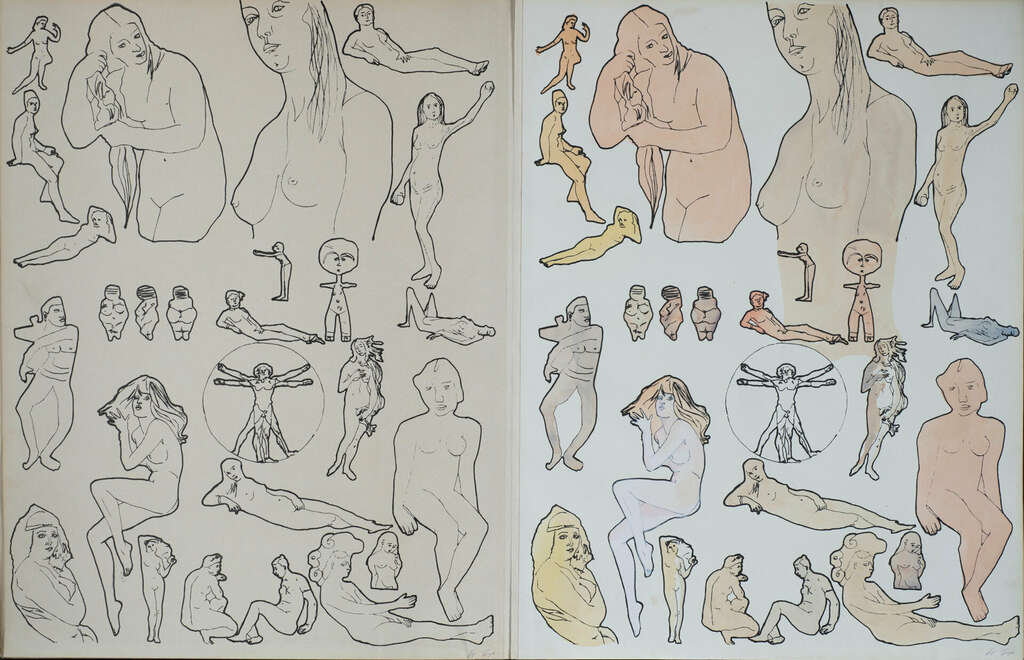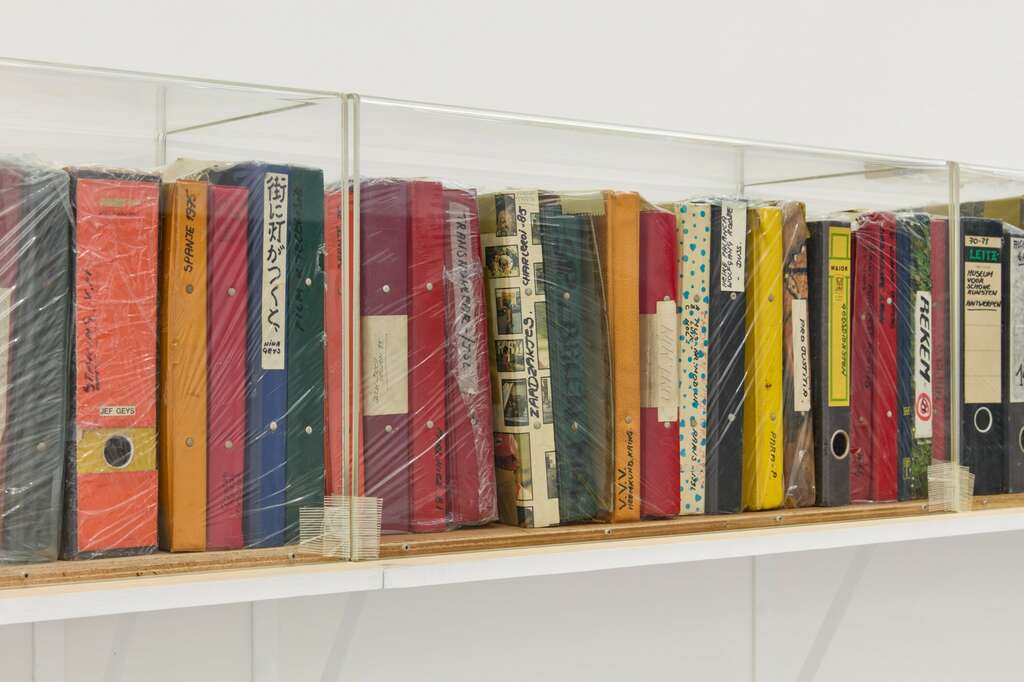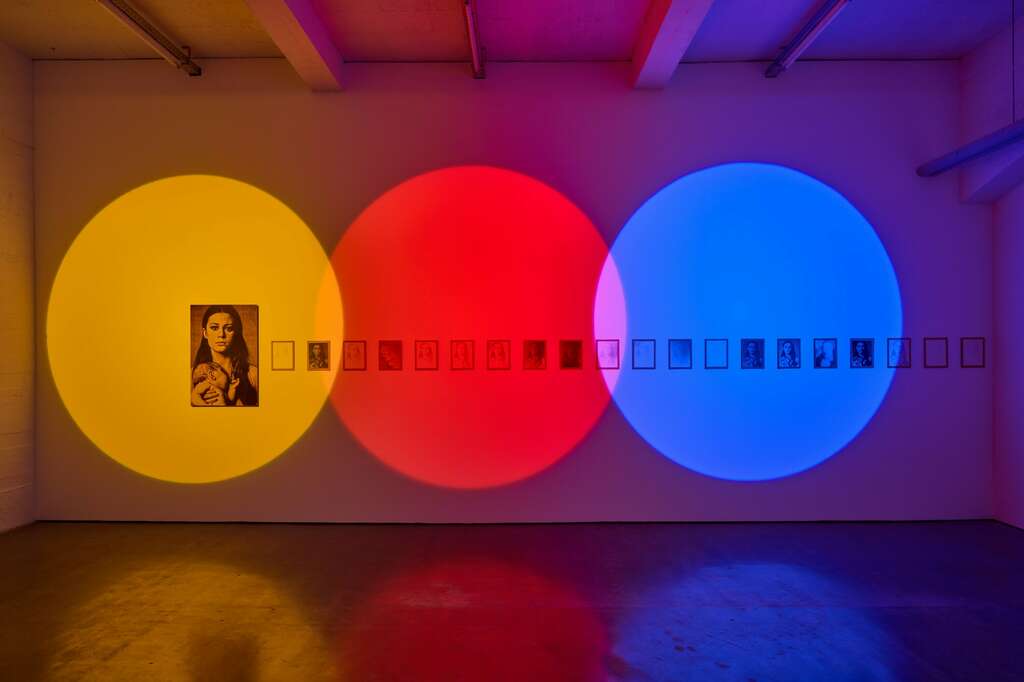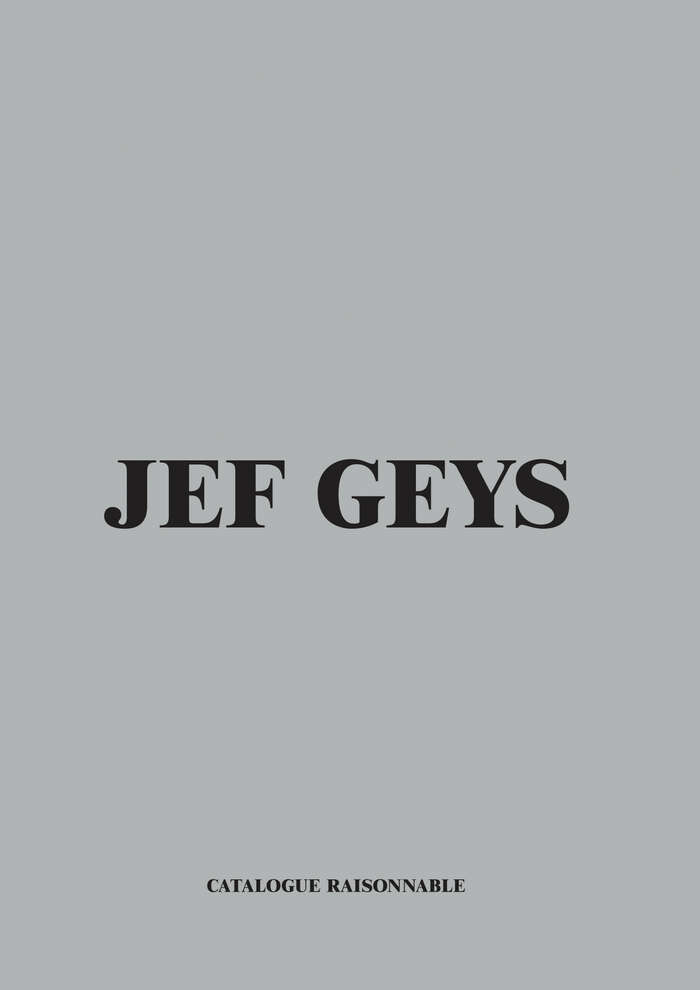Jef Geys
You don’t see what you think you see
Art critics commonly describe Jef Geys’ work as “unruly, and impossible to categorize in conventional art-historical categories.” Despite Geys’ subversive and critical attitude towards the art world, this ambitious survey exhibition shows that his work is not only deeply engaged and socially critical, but also funny and sensory.
As Geys writes in 1991, “Is what one sees really what one thinks one sees? And what can one do with what one sees?” Our perception of things is shaped by assumptions, beliefs and habits, which in turn are influenced by education, mainstream media and advertising. Always critical of image and language, Geys aims to expose “the hidden, what one thinks one sees,” and encourages self-reflection and scepticism. This aim is the starting point of this survey exhibition of Geys’ heterogeneous work, enriched by previously unpublished and exceptional documents from the artist's archives.
From the early 1960s, Jef Geys compiled an archive, with the titles of everything he considered part of his artistic practice on his ‘List of Works’ serving as its index. With a total of 844 entries, the List of Works opens with photographs and drawings from Geys’ school days at the Brothers of Charity. A wide range of creative projects follow, spanning six decades of artistic practice. Avant-garde drawings and paintings, lacquered puppets, sensual fruit reliefs, performances and actions, conceptual photography, ‘open’ texts, and instructional films all make the list. But so do Geys’ observations of a first-time cyclist, his botanical studies for self-medication, his novel methods of teaching his students, as well as the local community meetings for direct democracy he helps organising. Jef Geys’ List of Works clearly demonstrates his versatility and broader interests as an artist, and as a precursor of interdisciplinary practice by integrating other disciplines such as biology, architecture, sociology, and anthropology within visual arts.
“For me, the main thing is to express my problems as clearly as possible, in a form and in a manner that feels obvious. Whether it’s an object, a project, or a painting, it doesn’t matter. I try to gain insight into things, and sometimes, to gain insight, I have to make something, and sometimes I have to write it down, and sometimes I have to blow up the museum to do it. To gain insight into things for myself. This is the self-study I'm working on.”
Jef Geys’ work can be considered a lifelong learning experience. Between entry 1 and 844, he accumulated knowledge and sought answers to the questions and problems he faced. In doing so, he involved many groups of people, including students, village residents, museum visitors, family members, and bar managers, not just within but especially outside the traditional academic art environments.
The WIELS exhibition goes hand in hand with the first survey publication of Jef Geys’ work. This monograph, edited by Charlotte Friling and assisted by Oriana Lemmens and Kaat Obbels, was created in collaboration with MER / Borgerhoff & Lamberigts, and designed by Joris Kritis. The title, Catalogue Raisonnable, is after a project found in Geys’ archive, containing the numbers, titles and images of his famous List of Works. Through access to the artist’s archive, close cooperation with Geys’ next of kin, and thorough art-historical research, this publication and exhibition project offers a rare opportunity for understanding and appreciating Jef Geys' multifaceted practice.
Curators: Charlotte Friling & Dirk Snauwaert
Assisted by Liska Brams, Oriana Lemmens & Kaat Obbels
In close collaboration with the Jef Geys Estate / KAZINI
With the generous support of:
Exhibition Circle Jef Geys
Publication Circle Jef Geys
Willame Foundation
Galerie Greta Meert
Galerie Jamar
In collaboration with: Air de Paris, Maxwell Graham Gallery, Galerie Max Mayer, Micheline Szwajcer
Under the auspices of the Belgian Presidency of the Council of the EU in 2024
ABOUT THE ARTIST
‘Born in Leopoldsburg, lives in Balen’ is how Jef Geys (1934-2018) liked to introduce himself in catalogues. After an “unsuccessful army career” and Publicity studies at the Royal Academy of Fine Arts in Antwerp, he became a 'Positive Aesthetics' teacher at the State Secondary School in Balen. Teaching, learning, emancipation, and self-realisation became significant themes in his art practice, and his ‘protest’ generation. From the late 1950s onwards, he steered towards artistic disruption, such as amateurish technical finishing, and the depersonalisation of authorship, in contrast to the spontaneous subjectivity of previous generations. Through repetition and serialising of the multiple, he disrupted the notion of the ‘original’ and he set up networks and collaborations to support cultural influence and exchange with ‘other’ modernities. Strongly rooted in his region, Kempen and Balen, Jef Geys took an unconventional approach that often veered away from prevailing trends. His 'Cultuurcentrale', for instance, delivered artworks on demand and challenged conventional ideas about popular art. He also received international appreciation, with invitations to the global São Paulo and Venice Biennales, documenta 11 or Skulpturprojekte Münster 97.
Geys defied tradition, deconstructed language, and championed open cultural exchange, establishing him in many ways as a true pioneer.
Related Events

Opening: Jef Geys & Oscar Murillo

Look Who's Talking: Dirk Snauwaert (NL)

Look Who's Talking: Charlotte Friling (FR)

Nocturnes

Look Who's Talking: Etienne Wynants (NL)

Look Who's Talking: Anne-Claire Schmitz (FR)

Moritz Nebenführ on the 'Kempens Informatieblad' (EN)

Nicholas Tammens: Jef Geys & the School (São Paulo, 1991) (EN)

Gloria Hasnay: Annotations to the Kempens Informatieblad (EN)

Liesbeth Decan: Jef Geys and the medium of photography (NL)

Inge Godelaine: Villa Wintermans (EN)

Inge Godelaine: Gevoelsspeeldoos (NL)

Inge Godelaine: 7x Jef Geys (NL/EN)

Look Who's Talking: Kaat Obbels & Oriana Lemmens (NL)
Publication
With the support of


Exhibition Circle Jef Geys
M. et Mme Jacques & Christiane Berghmans
Dhr. Jan Dams
Dhr. en Mevr. Guy & Christine Jamar – Demeersseman
Dhr. Jos Jamar
Dhr. Carl Liekens & Mevr. Lief Keuppens
Mevr. Greta Meert
Dhr. en Mevr. Ivo & Monique Van Vaerenbergh
Dhr. Marc Vandecandelaere
Publication Circle Jef Geys
Dhr. Frederik Swennen / Dhr. Stijn Geerts
Baron Vic Swerts
Mixed Media
Watch and listen to additional videos and sounds around Jef Geys' exhibition at WIELS.

